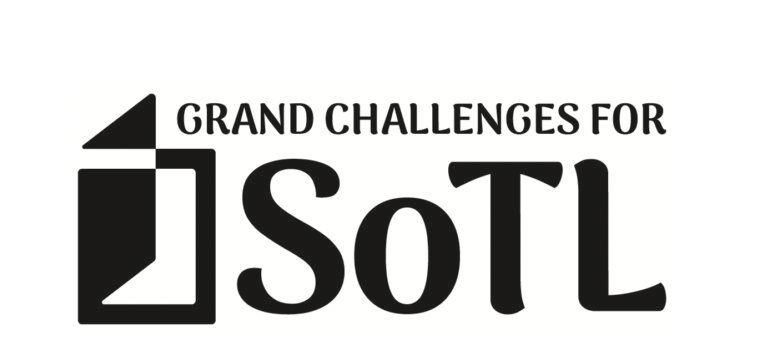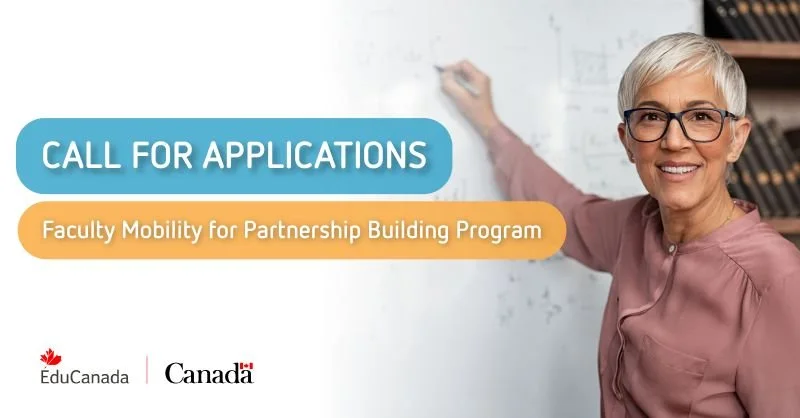This guide is aimed at undergraduate university students faced with the frequent task of writing essays, term papers, or reports.
This is not a comprehensive manual covering the intricacies of research, writing, and formatting. Links to such manuals are provided at the end of this guide.
It is hoped that this guide will:
Provide a rough guide to the various processes that combine to produce a quality essay
Alert you to some of resources and services available at the library and beyond
Ease anxieties you may have if you are writing university level papers for the first time
» Getting Started
Baby Steps
You may feel overwhelmed by the enormity of an assignment; however, it may help to think of your assignment as a series of small, manageable steps. For example, a 1500 word essay might be broken down in this way:
- Introduction: 200 words
- Main body: 4-5 core ideas at 200-250 words each
- Conclusion: 300 words
Each correctly formatted page would contain roughly 250 words.
Get the Facts Straight
The next step is to make sure you understand the requirements, double-check your assignment or essay question: How long is the term paper supposed to be? When is it due? How much analysis is required? How much is personal commentary? Does the assignment require a literature review? How many and what type of sources are required? The last is important, as you want to spend time looking for the correct types of sources.
The depth of research often depends on how long the paper needs to be. Research is a lengthy process; therefore, schedule more time than you think you will need. Students who leave little time for research find that they cannot complete enough research, or that the materials they need for the assignment are not available.
There are several different essay styles, each with its own form and function.
Give yourself time to plan
Planning ahead will allow you time to fill in research gaps.
For example:
- November 1st: Read first and second journal
- November 3rd: Read third journal and fourth journal
- November 5th: Search for additional sources
Essay Due Date: Nov 26th
Know Your Topic
Gain at least a basic familiarity with your topic before beginning in-depth research.
The right reference book, or even a course textbook, may provide you with a well-written overview of a topic to guide your research process. The library's Reference Collection has specific encyclopedias, dictionaries, handbooks and other materials on everything from Philosophy to Economics, Religion to Biology, to Native Peoples to Mathematics. There are also numerous online sources available. The Library Information Desk can guide you towards some of these; for example, you have to write an English paper on nihilism in Albert Camus' novel The Stranger. You may have understood the book, but still have no idea what nihilism is. The Dictionary of Literary Themes and Motifs, however, has an excellent 15-page history of nihilism in modern fiction.
Analyze Your Topic
Think about your assignment. Analyze your thoughts before starting to do research. What is your personal view of the topic, as you understand it now? What points would you like to discuss? What information do you need to find?
Think of different words, phrases and synonyms that describe your topic, so that you have a variety of words to use when conducting research. By making lists of these related ideas your library research will progress more smoothly.
Have a firm grasp of your primary sources before turning to secondary commentaries or criticisms. In other words, read Pride and Prejudice first, and then write down some of your own impressions and ideas related to your essay topic. Research other people's opinions on the book after looking at the primary sources.
A critical essay incorporates research and personal opinion; research offers evidence to supports opinions. A research paper is heavily focused on documentation, but it should include a thoughtful evaluation of available evidence (Barnett 344).
Narrow Your Topic
Narrow the topic if it is too broad. For example, if your subject is the novels of Jane Austen (too broad), and your paper length is only 1000 words, you could narrow the topic to an analysis of clothes in Pride and Prejudice.
One way to narrow a subject is to check the Library of Congress Subject Headings, which is located at the Library Information Desk. Subject headings will lead you to related and narrower ideas relating to your topic.
Browse the broad subject in the Novanet catalogue or in a library database (choose one that contains material on your topic, e.g., the MLA Bibliography for English Literature topics). Look at the titles of books (Novanet) and articles, do internet searches on your topic, and identify a narrower focus that interests you.
Still stuck? Consult your instructor if you are floundering with the subject before doing research and writing. Or you will end up wasting a lot of time.
Some may find it easier to narrow their essay topic after some preliminary research has been completed. Choose whichever method that works best for you.
» Gathering Information
Research will provide you with the details, opinions, and facts you need to develop your thesis. The best place to conduct your research is the Patrick Power Library, where sources are plentiful, and help is always available at the Information Desk.
Helpful Hint: Talk to the Library's information desk staff. That's why they are there! Even experienced library users can benefit from discussing their term paper with the staff at the information desk. Information desk staff have helped thousands of students like you, and can provide very useful information and advice. They can save you valuable time. The Library info desk staff know a wide range of resources and strategies, and can sometimes spot problems with your topic even before you are aware of them.
Organizing your Research Notes
Organize and clearly document the information you find, or you will waste valuable time. Be sure to record all bibliographical information at the beginning of your notes: author, title, place, publisher, and date.
- Example:
McKeough, Patrick. Riding the Bull: How You Can Profit from the Coming Stock Market Boom.
Toronto: Key Porter, 1993.
When you take notes, ensure that the bibliographic details are visible, and that you record page numbers with each note. Put quotation marks around exact quotes.
Careful note-taking will save you a great deal of time when you write your paper. Ambiguous notes will require more digging to verify your information, which may not be easy to find the second time around.
What to Include in Your Notes
The purpose of a scholarly paper is to investigate a subject, to form opinions about it, and then to organize these opinions into a logical form, backing them up with details and documentation. In gathering notes and quotes, you should be looking for:
- Ideas that outline each side of an issue, argument or topic.
- Details that prove that the ideas are more than just an opinion or speculation.
- Quotations that illuminate the subject.
In your own words, paraphrase or summarize the information you have read. Remember that ideas from other sources, as well as direct quotes, need to be cited.
Use some sort of system to record your own impressions and thoughts about what you are reading. These ideas will form an important part of your paper. Try using brackets around your own thoughts; or different colour ink or highlighting; or different spacing; or use a separate page or note card for your own ideas, related to the information you are reading.
Finding Books
Use the Novanet catalogue to find books on your subject. Refer to your list of terms and ideas; choose keywords and subject headings to type into the Novanet catalogue. For the books that look interesting, write down the title, call number, and library. If the book is at another university, you can place a hold and have brought to the SMU library. Just ask Library Staff how it is done.
Your list should look something like this:
- Greenwald, Tom. Essay Writing Strategies.
SMU PE 1471 G74 2001
Sometimes books on the same topic will have some of the same call numbers. For example, some other books on essay writing are located at call number PE 1471. If you notice this trend when browsing through Novanet, go to the bookshelves and browse the books with the same call number relating to your topic. Look at bibliographies at the back of useful books for more sources.
Finding Journal Articles
Refer to the library's computer databases to find journal articles on your subject. Some computer indexes give citations only, some include abstracts, and many provide the full-text of the articles.
Journal articles are particularly useful if you want the most current information available. Some indexes also include references to chapters in books and to book reviews.
To search indexes, begin by using the same keywords and subject headings that you used in Novanet. Be flexible! Try several different words or phrases.
It is useful to write down the titles of the indexes you have searched, in case you need to do additional research later.
- Example:
(No author)
"Gates tops Forbes' billionaires list again."
Daily Commercial News, v. 71 #136 July 15, 1998. p. B9
Finding Reliable Internet Sources
It is a good idea to get advice from library staff about effective Internet search strategies, or you may end up searching for hours online.
It is a good idea to check with your instructor before incorporating website information into a paper. Some instructors may ask that you use only book or journal sources for your paper. In addition, Internet sources should be judged by the same criteria as print sources. What are the authors' qualifications? Have the authors supported their arguments with accurate facts? Have they cited their sources? Is their research up to date? Do they explore all sides of an issue, or do they exhibit a biased viewpoint?
Always remember; a lot of what you may find on the Internet may be erroneous or incomplete. Anyone can publish anything they like on the Net: opinions, facts, or outright lies.
That being said, there are many reliable organizations (governments, corporations, special interest groups, etc.) that provide information online.
In addition, it is a good idea to print out web pages you cite as references for your paper. Sometimes the document, webpage, or even the entire website is not accessible at a later date, and you cannot then prove its existence.
Use some sort of system to record your own impressions and thoughts about what you are reading. These ideas will form an important part of your paper. Try using brackets around your own thoughts; or different colour ink or highlighting; or different spacing; or use a separate page or note card for your own ideas, related to the information you are reading.
» The Writing Process
Organize and Outline
Some form of an outline is crucial to planning and organizing your ideas. Identify the main issue and the key points you want to make. List any major themes into which the topic can be subdivided. Include all the ideas you plan to mention. An outline traces the development of your ideas, and provides a reference point to return to, if needed.
The outline should reflect the three parts of the essay: the introduction, the body of the paper, and the conclusion.
The introduction includes a brief background on your subject, a thesis statement, a mapping scheme(your main points), and engages the interest of the reader.
The body of the paper presents and discusses your evidence and arguments in paragraphs, each of which should have its own unity.
The conclusion links back to the introduction. It summarizes the main points of the paper. The conclusion also expresses a final judgment.
An Example Topic Outline:
- Topic: An essay on mountain climbing (1000 words):
- Introduction: Should include the following elements:
- Context: Background information on your topic
- Main topic: What you are writing about
- Thesis: What you are arguing. A thesis statement identifies the purpose, scope and focus of the essay; it is the main argument, what you are trying to prove, in your essay. Some instructors may suggest you phrase your thesis as a question. The thesis statement is the hook that snags your reader/instructor and makes him/her want to read the whole essay. Be aware that the thesis statement will probably change as you do your research and write your paper!
For example: Experts believe that without the proper preparation, training and equipment that a new mountain climber will face numerous difficulties.
Some prefer to let their research guide them into developing a thesis statement and write it after they have done the majority of their research. While this method is fine to use, it is crucial that you stay focused on your topic, or you will end up with a weak thesis. - Significance: A statement of significance tells the reader why you are making them read the essay and why your argument is important to consider.
- Mapping Scheme: are your main points. This can sometimes be worked in with your thesis.
- Point 1: Preparation
- Point 2: Training and Techniques
- Point 3: Equipment and Food
- Point 4: Planning the Ascent
- Point 5: Getting to the Top and Difficulties to Face
- Conclusion: Summarizes your argument and main points and also includes ideas or things you have learned from the topic. It also contains a statement of significance. A statement of significance is a ‘so what?’ statement which tells the reader why your arguments are important to consider.
Our online resources include a worksheet template for an essay outline that you can print and complete.
It is at this stage that you may want to consider booking an appointment at the Writing Centre. Appointments can be booked in person, by email, phone 902-491-6202, or online.
Writing the First Draft
You are sitting in front of a pile of notes wondering how to turn it into the greatest essay ever written. This section will provide tips on writing the first draft.
- Write, Write and Write
The first, and easiest, thing to do is write, write and write. At this stage, do not worry about editing, grammar or your sentences making sense. Just focus on getting your ideas on paper.
Do not worry if you do not know everything you are going to say before you begin. Often it is only through the process of writing that ideas emerge.
If you are having trouble starting, or if you stall in the middle, write anything including random thoughts. Do not wait for the "perfect first sentence." You will be able to edit your essay later! - Check your focus.
While you are writing away remember to keep checking your focus. Are you still following the intended organization of your ideas? Are you still on track? Do your ideas flow in a logical order? Are you succeeding in developing your thesis statement?
It is also good to remember that you are attempting to create a logical presentation of what you know about the topic: the issue in question, the argument you are making, the facts that support your case, and the conclusions you have reached.
Some people prefer to plunge right in and write the first thing that comes to mind. But many of these people may already have a mental outline of what they want to say and are prepared to put their jottings into some cohesive order later. Whatever method works for you, it is the end result that matters, not how you got there. - Refrain from generalizing
Refrain from making generalizations about facts with which you are not personally familiar. For example, you cannot state that all Americans love to eat cheeseburgers unless you have statistical evidence that 100% of Americans do, in fact, love to eat cheeseburgers. Rephrase the generalization into an opinion: "Many Americans seem to enjoy hamburgers, judging by the number of hamburger fast-food establishments in the country." - Maintain a balance of Facts, Opinions and Interpretations
Most term papers should include a healthy balance of facts, opinions and interpretations, and conclusions based on the evidence in the paper. If you think that a particular piece of scientific research is flawed, a business plan is inferior, or a revered poem is junk, do not be afraid to say so. Just make sure you back up your opinions with evidence. - Grammar
Check your grammar. Look for punctuation errors, shifts in verb tenses, and overall to insure your paper makes sense. If you are not sure what to look for or how to fix something there are a number of grammar resources available that can give you step by step guides on a number of key grammar points.
The Writing Centre can also help you with resources and help you discover grammatical errors and how to avoid making the same mistakes in the future.
There are also separate handbooks on writing specific kinds of university papers, such as book reports, lab reports, business reports and scientific and technical writing. We have links to a few of those at the end of this as well. - Giving your sources credit
When writing from your notes, make sure you avoid copying an author's words, unless, you acknowledge the source. For guidelines on documenting sources and compiling bibliographies and works cited lists, refer to a style manual; several are linked at the end of the page, and many more are available at the Writing Centre. If your professor has expressed a preference for a particular format, use it!
Check that each quotation and its acknowledgement are exactly correct. Remember that an author's ideas need to be cited whether you quote directly or not.
A Bibliography/Works Cited List is a list of all the sources you used in your paper or found useful in preparing your paper. A list of Works Cited contains only the works you cite in your text; other references are excluded. Arrange the list alphabetically by the authors' surnames.
A Note about Plagiarism: Plagiarism (using the words and ideas of others) is unacceptable in all Saint Mary's University courses, and may result in academic penalties such as a failing grade and/or dismissal from the University. Well-organized notes can be your best defense against unintentional plagiarism!
» Details, Details
Filling Research Gaps
You may find, after you have looked at all your research and finished your first draft that you are left with some gaps in your information. Sometimes gaps are not serious, and your information can be arranged to remove the gap. Other times, the missing facts are important; these should be verified or your paper will not follow logically or flow correctly. Your argument will not be persuasive if you leave the reader with many unanswered questions.
First, check your notes to see if you have overlooked any details.
Check encyclopedias, almanacs, yearbooks or handbooks for concise data or facts. The internet also offers a great deal of information. Check with library staff again for additional assistance.
After you have checked for research gaps, it is time to edit your paper. Below is an Essay Checklist of questions you should ask yourself when looking through your paper.
An Editing Checklist
- Have you followed a well-organized plan and kept to the point?
- Have you included all essential material (and no irrelevant material) from your notes and outline?
- Is your presentation logical? Is your reasoning sound? Are your conclusions based on facts?
- Have you dealt with probable objections to your ideas?
- Have you made the point without exaggeration or over-simplification?
- Does your introductory paragraph state the purpose of the paper and draw the reader's interest?
- Are your paragraphs unified, emphatic, and fully developed?
- Have you made smooth transitions from paragraph to paragraph?
- Is your language appropriate (no contractions such as doesn’t; no slang and geared towards an academic audience)?
- Have you followed standard grammar and sentence structure?
- Does your last paragraph wrap things up and give a sense of completion?
- Do all your citations follow the same format and does your bibliography follow citation guidelines?
- Have you included all the necessary information needed to make your arguments clear? Is there any padding in your essay? (irrelevant arguments and facts, extra words). Padding can distract, confuse, and irritate your readers, and most professors can spot it a mile away.
Edit # 1
First drafts need revision before they become the final result. Check grammar and spelling; do not rely completely on your computer's spell checker and grammar checker. Read your sentences carefully to insure that they actually say something, and that they are relevant and clear. If necessary, replace words with better ones, sharpen sentences or rearrange paragraphs. Check that each sentence does not repeat ideas you have already expressed.Watch for sexist or other inappropriate language.
Information sources on writing and editing are linked below, and available at the Writing Centre.
» Basic Format Guidelines
Below are some basic format guidelines. Some instructors may want you to follow a specific guide, so be sure to check with them before formatting your paper.
- Double-space the body of the paper; however if a quote is over 40 words long, use single spacing.
- Set a one-inch margin for the paper.
- Use Arabic numerals as page numbers for the body of the paper, usually placed at the top right.
- For a title page, centre the following information: title of the paper, your name, the course name and number, the professor's name, and the date the paper is due.
- Do not embellish the title page with fancy lettering, drawings, pictures or colour.
Word processing facilities are available on campus in computer labs and in the Library. For more information about these services, contact ITSS at 902-420-8111.
For Office 365 support and training, visit the SAS in Atrium 107 or contact them (sas@smu.ca 902-496-8168)





















